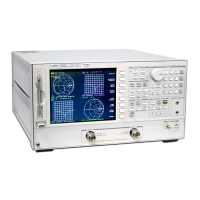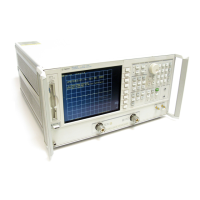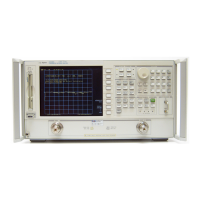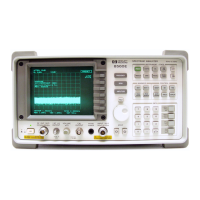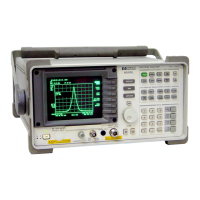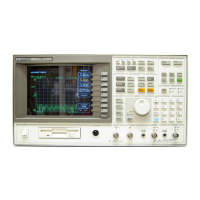5-38
Hardkey/Softkey Reference
Analyzer Functions
selects the module to be used in the ECal operation. Select
the module according to frequency range and connector
type of the DUT. In some cases the Module B selection will
not be used.
presents a text window that contains information about
the selected module.
provides access to more power ranges.
selects the 85032B/E cal kit.
selects the 85032F cal kit.
selects the 85036B/E cal kit.
sets the N dB point which is used to determine the
bandwidth test cutoff frequencies. Enter the number of
decibels below the peak of the bandpass that the filter is
specified.
sets the analyzer to network analyzer mode.
activates the sequence edit mode and presents the
new/modify sequence menu with a list of sequences that
can be created or modified.
puts a new line command into the display title.
steps forward through a tabular list of data page-by-page.
triggers a user-specified number of sweeps, and returns to
the hold mode. This function can be used to override the
test set hold mode (indicated by the notation “tsH” at the
left of the screen). In this mode, the electro-mechanical
transfer switch (Option 007) and attenuator are not
protected against unwanted continuous switching. This
occurs in a full two-port calibration, in a measurement of
two different parameters that require power out from both
ports, or when the channels are uncoupled and a different
power level is set for each channel.
If averaging is on, the number of groups should be at least
equal to the averaging factor selected to allow
measurement of a fully averaged trace.Entering a number
of groups resets the averaging counter to 1.
is used to select the number of data points per sweep to be
measured and displayed. Using fewer points allows a
faster sweep time but the displayed trace shows less
horizontal detail. Using more points gives greater data
density and improved trace resolution, but slows the
sweep and requires more memory for error correction or
saving instrument states.
Ω
Ω
Ω
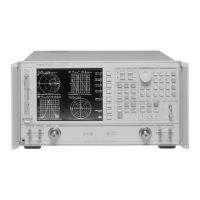
